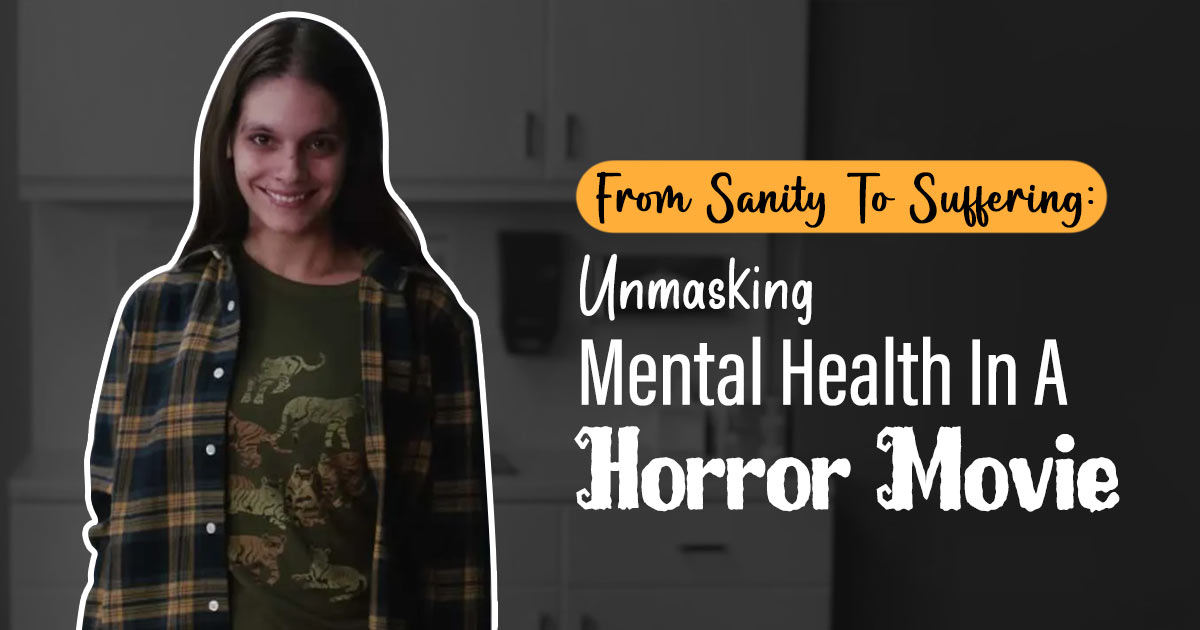Mental health has emerged as a prominent and essential subject in contemporary cinema, shedding light on the intricacies of the human mind and the struggles individuals face in their daily lives. One such film that delves deeply into the realm of mental health is the Smile horror movie.
Directed and written by Parker Finn, this movie presents a compelling narrative that not only captivates audiences with supernatural elements but also serves as a thought-provoking exploration of mental health, trauma, and the consequences of conceits aling one’s inner struggles.
The Destructive Power Of Grief And Trauma
The ending of Smile showcases the destructive power of grief and trauma, leaving viewers disappointed as Rose’s situation worsens, and she becomes trapped in her own mind. Rose Cotter, portrayed by Sosie Bacon, is a therapist who witnesses a patient’s suicide, triggering a series of harrowing hallucinations.
The film’s central entity, represented by a sinister smile, serves as a metaphor for emotional pain and the often-inexorable nature of trauma, driving home poignant messages about suffering and its effects. Rose’s journey throughout the movie serves as a stark reminder of how grief and trauma can erode a person’s mental well-being, leading to devastating consequences.
Pressure To Conceal Struggles
The Smile horror movie 2022 serves as an allegory of trauma and mental health, highlighting the pressure individuals often feel to conceal their struggles with a facade of fake happiness. In a society that values appearances and often stigmatizes mental health issues, Rose’s experiences mirror the silent battles many face when dealing with their inner demons.
The film underscores the detrimental effects of suppressing one’s emotions and suffering in silence, emphasizing the importance of acknowledging and addressing mental health concerns.
The Enigmatic Smile Entity
The Smile horror movie does something unique with the malevolent entity that haunts its characters, leaving the audience curious and wondering if there is any way to stop it. Similar to iconic horror movies like The Ring or It Follows, the figure could almost be seen as fate itself, an omnipresent force that relentlessly pursues its victims.
However, Smile goes beyond conventional horror tropes, transcending into the realm of psychological drama. It unearths how trauma and grief can corrode a person from within, extinguishing all hope, a theme that lingers long after the movie’s conclusion.
Psychological Twists And Unnerving Narrative
Smile not only presents a supernatural horror but also infuses intricate psychological twists into its narrative. These twists challenge the audience’s understanding of Rose’s terrifying experiences and contribute to the film’s unsettling atmosphere.
As viewers, we are left questioning whether what we are witnessing is real or a product of Rose’s deteriorating mental state. The film’s structure allows for consistent misdirection, keeping us on the edge of our seats while adding depth to its portrayal of mental health struggles.
Loss Of Control Over Mind And Body
Throughout the film, Rose’s ordeal serves as a metaphorical representation of a person’s loss of control over their mind and body in response to trauma. As she gradually succumbs to the malevolent entity’s torment, her grip on reality weakens, causing those close to her to distance themselves.
This portrayal underscores the isolating nature of mental health struggles and the profound impact they can have on one’s relationships and overall well-being.
The Victims’ Lack of Control
The victims of the smile entity in the Smile horror film also lack complete control over themselves, which may explain their swift demise within a week of being cursed. While the film doesn’t provide a concrete explanation for this timeframe, it can be linked to the broader message about mental health.
The rapid deterioration of their psychological stability ultimately leads to their tragic deaths, highlighting how society often underestimates the severity of mental health issues in comparison to physical ailments.
A Lethal Virus Of Emotional Distress
The Smile horror movie draws a poignant parallel between the malevolent entity and the transmission of emotional suffering. The curse in the film can be interpreted as a metaphor for the transference of emotional pain from one deeply wounded individual to another.
The common thread among the victims is the experience of witnessing a loved one’s death, serving as the catalyst for the curse’s transmission. This representation equates emotional distress to a lethal virus, much like the entity in “It Follows,” transmitted in two distinct ways.
Unknowing Transmission And Deliberate Infliction
In the world of Smile, there are those who unknowingly pass on the curse, compelled by the entity to take their own lives in front of a potential carrier. On the other hand, there are those who consciously inflict their pain on others in a futile attempt to rid themselves of the curse.
Robert Talley, a character in the film, serves as an example of the latter, resorting to murder to free himself from the affliction.This dichotomy in the curse’s transmission underscores the consequences of unhealthy coping mechanisms and serves as a metaphorical commentary on the destructive ways people handle their trauma and mental health struggles.
As a piece of contemporary cinema, Smile contributes to the ongoing conversation surrounding mental health, reminding us of the importance of empathy and support for those facing such challenges in their lives.








